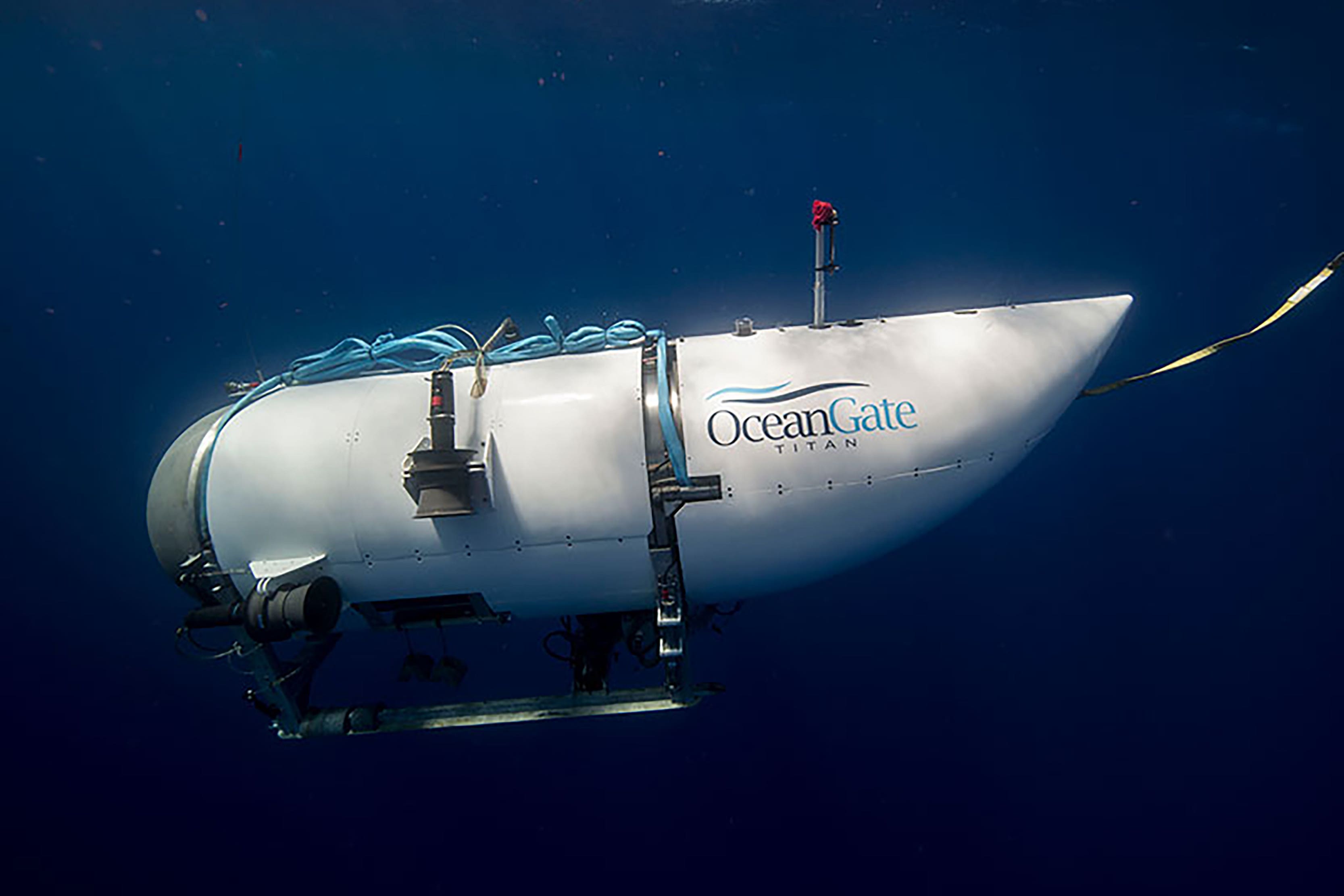Titanic sub recovery mission could cost ‘millions’ – with taxpayers footing bill, expert says
People only pay for own rescues in rare cases
Your support helps us to tell the story
From reproductive rights to climate change to Big Tech, The Independent is on the ground when the story is developing. Whether it's investigating the financials of Elon Musk's pro-Trump PAC or producing our latest documentary, 'The A Word', which shines a light on the American women fighting for reproductive rights, we know how important it is to parse out the facts from the messaging.
At such a critical moment in US history, we need reporters on the ground. Your donation allows us to keep sending journalists to speak to both sides of the story.
The Independent is trusted by Americans across the entire political spectrum. And unlike many other quality news outlets, we choose not to lock Americans out of our reporting and analysis with paywalls. We believe quality journalism should be available to everyone, paid for by those who can afford it.
Your support makes all the difference.The search for Titan, the submersible that went missing last week on an expedition to the Titanic shipwreck, involved rescue teams from the US Navy, the Canadian and US Coast Guard, who brought a retinue of search planes, remotely operated vehicles (ROV), a submarine, a deep sea winch, and classified undersea listening equipment.
Also joining the effort was a French ROV team, a British Royal Navy submarine expert, and specialists from the Woods Hole Oceanographic Institute.
Together, they searched an area 900 miles off the US, scouring an area twice the size of Connecticut and two miles deep for the missing sub, until the US Coast Guard confirmed on Thursday that the five-person crew died in a “catastrophic implosion.”
Follow the latest updates on the missing Titanic submarine here
All told, the rescue probably cost taxpayers millions of dollars, according to Chris Boyer, the executive director of the National Association for Search and Rescue, a nonprofit. It’s unlikely that OceanGate, the company which built the Titan, will pay for the efforts, Mr Boyer told USA Today, arguing no one should be deterred from seeking emergency aid because of worries about the cost.

“That’s their job,” he told the paper, though he noted that as private exploration continues to go to new heights and new depths, from the Titanic wreck to space, it’s worth discussing how public resources are spent.
“I think it’s going to become a larger issue for us. Because it’s not just under the water,” he added. “We now have private spaceships flying private astronauts into space…What happens when that private spaceship can’t come back home?”
Different jurisdictions handle such questions differently.
Some US states like New Hampshire charge for rescue costs when the people at risk are deemed to have engaged in reckless behaviour, while others, like the National Parks Service, don’t charge for rescues on their territory.
The Coast Guard spent $42,000 rescuing ocean kayaker Cyril Derremaux on a voyage from California to Hawai’i, an effort that involved a helicopter and a rescue diver.

He told The New York Times he was grateful he could call the Coast Guard and that the crew of the missing submarine were “worth saving.”
“I would not have called the Coast Guard if it weren’t a life-threatening situation,” he said, adding, “I think it’s part of the human spirit of trying to do things that are really hard for what it teaches us about human resilience, determination and to do things that maybe don’t make sense.”
Paul Zukunft, who previously led the US Coast Guard, told The Washington Post it would be unusual for a private individual or company to pay for their own rescue.
“It’s no different,” he said, “than if a private citizen goes out and his boat sinks. We go out and recover him. We don’t stick them with the bill after the fact.”
However, he added that the Titan disaster may inspire new rules, as the history of maritime regulations is often “written in blood,” from lifeboat requirements after the Titanic sank, to regulating steam boilers after a series of onboard explosions.




Join our commenting forum
Join thought-provoking conversations, follow other Independent readers and see their replies
Comments